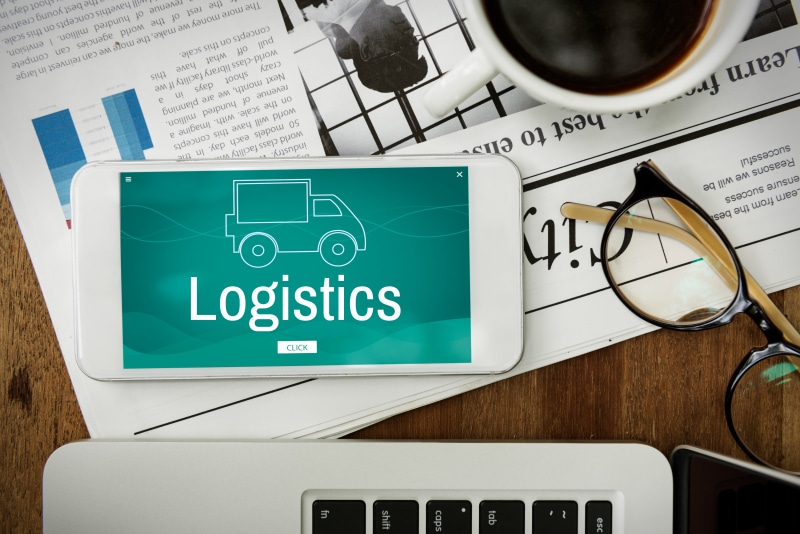Freight billing may appear simple at first glance, but it requires accuracy and efficiency throughout the process, from creating invoices to collecting payments. The logistics sector is constantly battling issues, including inaccurate billing and payment difficulties. Data entry services are crucial in this process since they help with the fast and precise filing of freight bills.
Freight bill processing, sometimes referred to as freight invoice processing or freight data entry, is the methodical handling and recording of data pertaining to freight shipments and associated financial activities. It is a record of the agreement between the shipper and the carrier. The bill typically includes details such as item description (quantity and weight), pickup date and time, and delivery deadline (typically for time-sensitive deliveries). Information about the shipper and the carrier, signatures, charges (shipping fee + taxes), and the mode of payment are additional crucial factors. Most businesses use a standardized freight billing system to streamline the invoicing procedure. However, a number of companies in this sector experience problems as a result of invoice errors that influence subsequent operations, postpone payment settlement, etc. According to a survey by 2021 Cargo Owners and Freight Forwarders, up to 20% of freight invoices may be incorrect, which is significant.
Challenges with Data Entry in Freight Billing
- A lot of paperwork is required for freight billing: The manual paperwork process used by logistic companies in the past is prone to billing errors caused by careless data processing. Multiple parties and complex operations may be involved in a single cargo, which results in complex freight billing and prolonged freight billing processing. Different formats and interfaces are available for freight invoicing, which might result in errors and lost time.
- Highly time-consuming:To ensure that the data has been submitted appropriately, suppliers and carriers must invest a significant amount of effort in checking invoices and other papers. Incorrect data entry might result in overbilling and be highly expensive.
- More complexities with the new normal: The current issues with freight billing have become more complicated because of the global pandemic. Owners of cargo are now finding it difficult to keep up with the weekly changes in container shipping rates and surcharges. This results in damaged client-supplier relationships and penalties for late deliveries.
- No proper standardization: The freight billing procedure lacks standards and control and takes a decentralized approach. It results in inaccurate billing and missing client data.
- Error in data: Re-processing the invoice is necessary when products and services are delivered to the provider for exchange or order cancellation. Confusion, incorrect data entry, and time wastage are the outcomes, all of which have a negative impact on profits. Other errors include:
-
- Duplicate Payments: There may be duplicate bills and payments for the freight produced by the carrier and the freight supplier separately.
- Discount rates lead to inefficiencies: Freight invoices deviate from the real quotes while offering discounts. If this information is not consistently recorded, the process may become inconsistent and inefficient.
- Mismatched Delivery Address: Delivery delays or even missing shipments may result from incorrect or inexact delivery addresses.
- Overpayments: Overpayments are possible when there are discrepancies between the initial quotation and the freight invoice.
How Data Entry Services Help in Overcoming These Challenges
Many businesses have discovered that outsourcing data entry is the best answer for problems relating to freight billing and its management because of all the aforementioned faults and difficulties. Having outside assistance with freight bill administration guarantees that everything is handled properly. In addition to minimizing errors and saving time and money, outsourcing can help with a number of other process-related problems. According to a survey by Statista, 65% of shippers worldwide contract out their warehousing needs to outside logistics companies.
- Errors are Reduced: The business may make mistakes with erroneous pricing, double billing, charging the wrong amount, and past-due invoices. The procedure of processing freight bills is certain to be completed without error via outsourcing.
- Turnaround Time: The task might be outsourced, which would enable the business to improve turnaround time. Additionally, it enables the company to meet its deadlines.
- Processor Fees: The business can reduce costs by outsourcing the freight bill processing. It makes sure that businesses concentrate on streamlining their current procedures. It would also free up their resources so they could focus on boosting production as they wouldn’t have to perform reconciliation checks at each stage of the procedure.
- Structured Method: By contracting out the entire process, businesses can gain from a structured approach to processing freight bills. To conduct additional analysis, the business managers have access to a well-maintained comprehensive database.
- Quick Processing: Outsourcing data entry helps in expediting the freight billing process. Additionally, there is a reduction of incorrect billing amounts, overcharges, lost invoices, inaccurate freight rates, and overdue bill amounts.
- Risk Reduction and Compliance: Processing freight bills necessitates adhering to a number of laws, contracts, and industry norms. It is possible to ensure compliance and reduce the risks associated with erroneous or inadequate paperwork by outsourcing to specialists well-versed in these requirements. In order to lower potential liabilities, service providers can help manage exceptions, settle disputes, and maintain audit trails.
Ready to streamline your freight bill processing and boost your logistics operation’s efficiency and revenue?
Data entry has evolved as an essential tool in processing freight bills. They enable logistics organizations to streamline their processes, cut down on errors, and eventually increase revenue by effectively solving issues with data volume, accuracy, timeliness, complexity, and uniformity. Logistics data entry services are a useful way to guarantee the timely processing of freight invoices where every second and every dollar counts.




